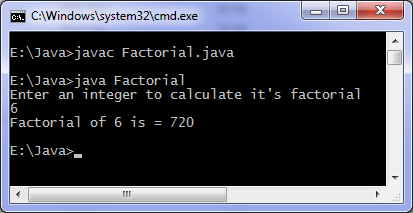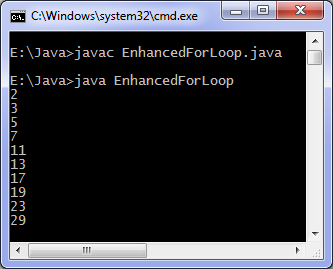This java program prints prime numbers, number of prime numbers required is asked from the user. Remember that smallest prime number is 2.
Java programming code
import java.util.*;
class PrimeNumbers
{
public static void main(String args[])
{
int n, status = 1, num = 3;
Scanner in = new Scanner(System.in);
System.out.println("Enter the number of prime numbers you want");
n = in.nextInt();
if (n >= 1)
{
System.out.println("First "+n+" prime numbers are :-");
System.out.println(2);
}
for ( int count = 2 ; count <=n ; )
{
for ( int j = 2 ; j <= Math.sqrt(num) ; j++ )
{
if ( num%j == 0 )
{
status = 0;
break;
}
}
if ( status != 0 )
{
System.out.println(num);
count++;
}
status = 1;
num++;
}
}
}
Output of program:

We have used sqrt method of Math package which find square root of a number. To check if an integer(say n) is prime you can check if it is divisible by any integer from 2 to (n-1) or check from 2 to sqrt(n), first one is less efficient and will take more time.

We have used sqrt method of Math package which find square root of a number. To check if an integer(say n) is prime you can check if it is divisible by any integer from 2 to (n-1) or check from 2 to sqrt(n), first one is less efficient and will take more time.







